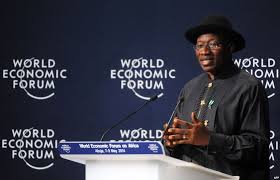The World Economic Forum, in Abuja yesterday released a new report on regional infrastructure development in Africa. The report titled Managing Transnational Infrastructure Programmes in Africa – Challenges and Best Practice was released in collaboration with The Boston Consulting Group, serves as a guide for policy-makers, sponsors and managers to help facilitate the delivery of transnational infrastructure programmes on schedule, at cost and at a high quality.
According to the report, such programmes can make a huge contribution to social and economic welfare by boosting intra-regional trade, connecting landlocked countries to world markets, and improving access to and security of electricity supply by linking large power plants with neighbouring countries.
The management of any complex infrastructure programme – a railway system, for instance, or an electricity production and distribution network – is difficult enough within an individual country. The challenges, says the report, are tremendous with transnational programmes, and more so still in Africa, owing to the continent’s wide variation in languages, cultures, financial capacities and maturity of public institutions.
“Infrastructure is essential for integrating regions, realizing socio-economic potential and fast-tracking development in Africa,” says Ibrahim Assane Mayaki, Chief Executive Officer of the NEPAD Planning and Coordinating Agency. He adds that the release of this report is an important contribution to identify best practices that will ultimately help facilitate and coordinate the implementation of regional priority programmes.
Leading organizations, including NEPAD, set up the Priority Action Plan of the Programme for Infrastructure Development in Africa (PIDA) in 2012, which encompass 51 programmes with an investment need of $68 billion until 2020.
There are myriad challenges when it comes to infrastructure projects in Africa, including financial, technical and regulatory alignments, as well as governance and human relations issues. Difficulties may also have a historical dimension too: a legacy of mistrust or even conflict can often jeopardize cooperation between participating nations, and many countries lack a tradition of conducive environmental measures, such as enforcement of anti-corruption laws and the availability of stringent regulations on public-private partnerships.
“Africa’s growth will accelerate through success in building intra-African trade. Coordinating actions across multiple Governments inevitably makes the process more complex, costly and bureaucratic. But the payoff from regional integration — building more efficient and reliable infrastructure for energy, logistics management, and movement of labor across borders—is high and will have a strong multiplier effect on growth, entrepreneurship and employment” notes Jay Ireland, Chief Executive Officer of GE Africa.
The report enumerates best practices that have been brought to bear in response to the challenges at various phases of a programme’s lifecycle. They include: a joint strategic vision for regional infrastructure and integrated national infrastructure plans; a comprehensive cost-benefit analysis assessing the impact in all affected countries; the issuing of a single transnational concession rather than several intra-national concessions; a precise allocation of the costs, risks and benefits to the participating countries, with a detailed compensation plan for people adversely affected by the facility; a rigorous and transparent tendering process; harmonization of regulations; and coordination of demand profiles and maintenance schedules.
Another key success factor is to institutionalize cross-border collaboration. This could best be done by setting up a strong programme management unit, established through a special treaty between all participating countries. Whether based on public or private resources or a mix of the two, such a unit would oversee most of the phases of the programme, and coordinate all the stakeholders.
“The relevance and applicability of the various best practices have to be determined on a programme-by-programme basis,” says Alex Wong, Senior Director, Head of Centre for Global Industries and Head of Basic & Infrastructure Industries at the World Economic Forum. “Adopted and applied appropriately, they should remove roadblocks to the implementation of regional infrastructure programmes and make them a reality.

